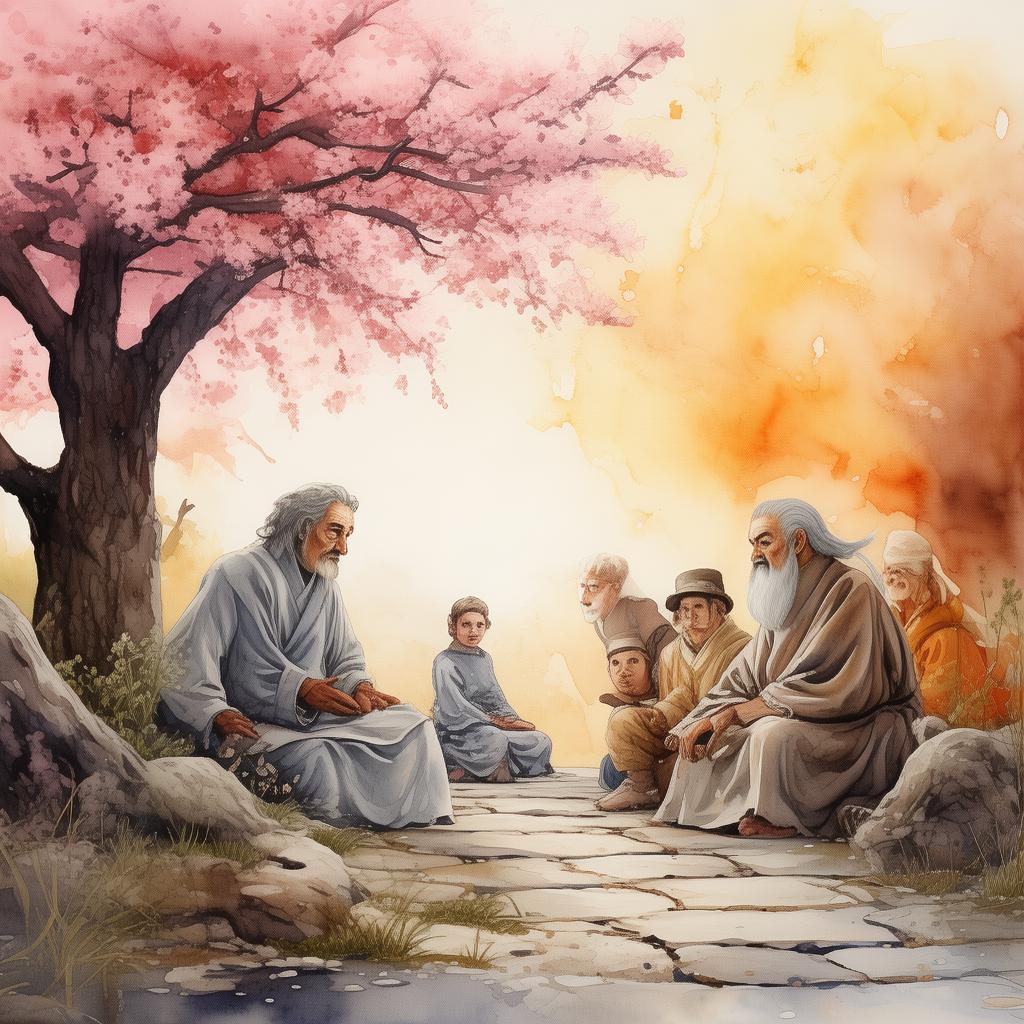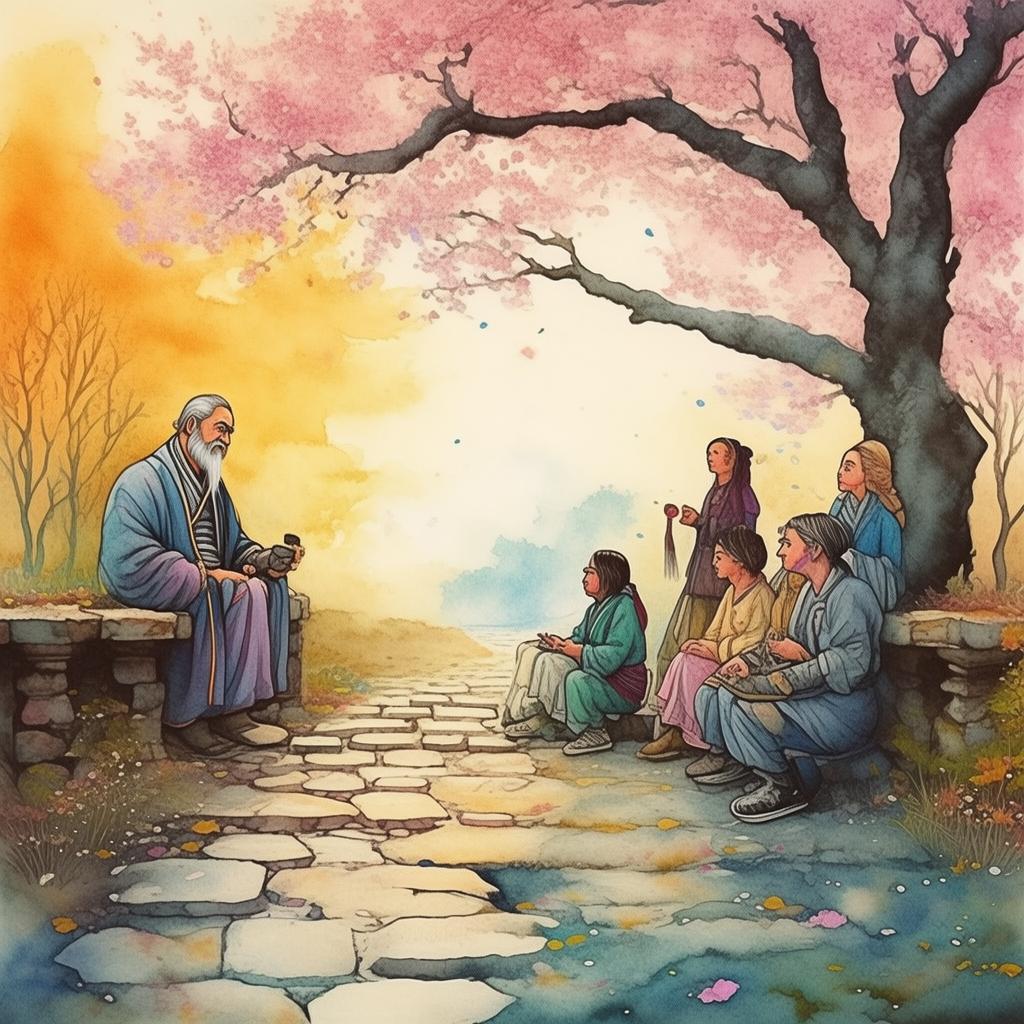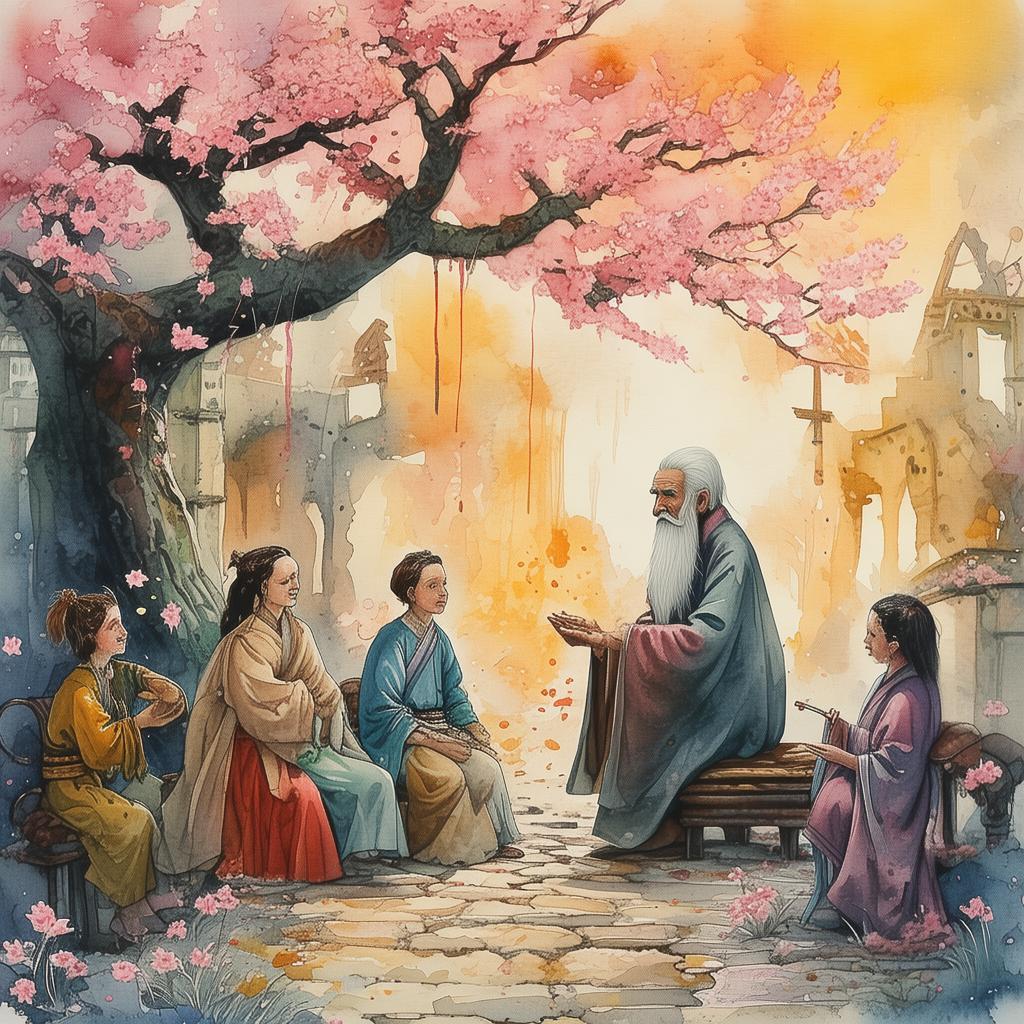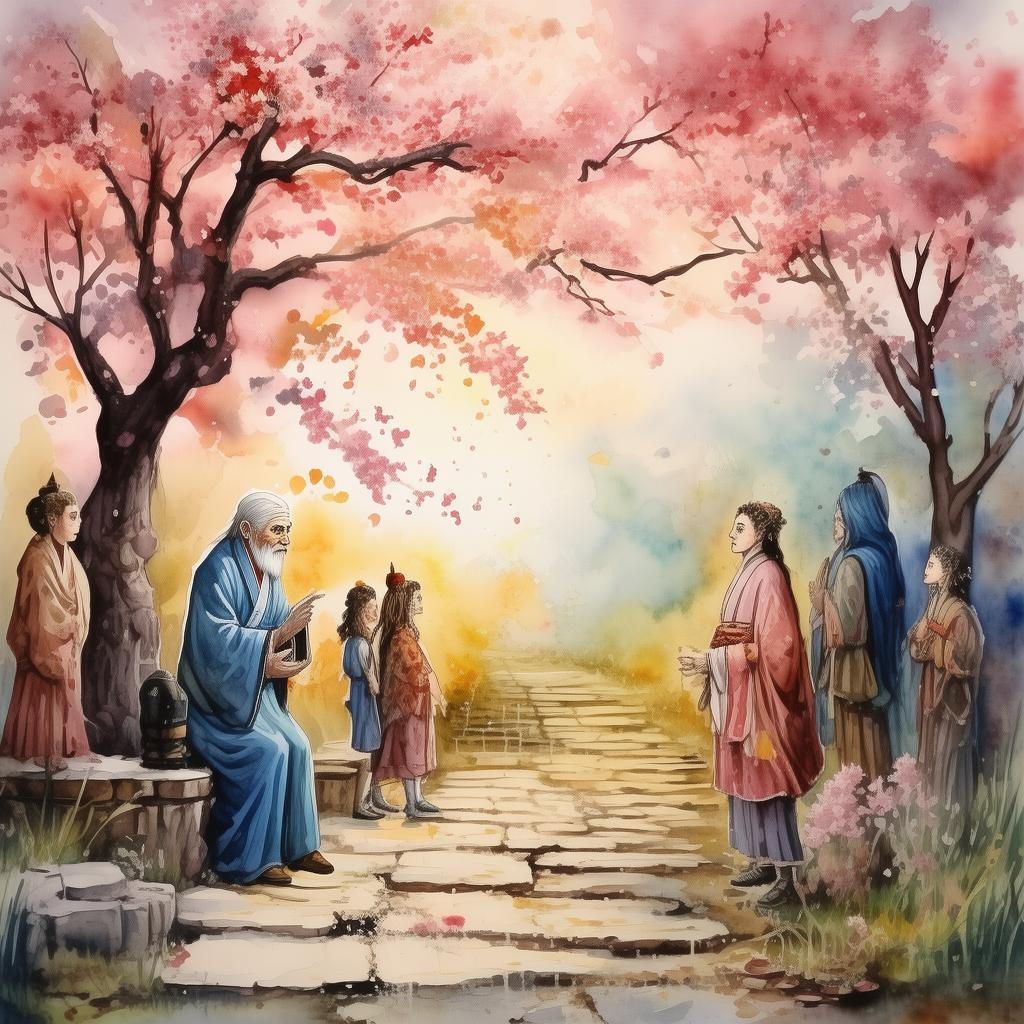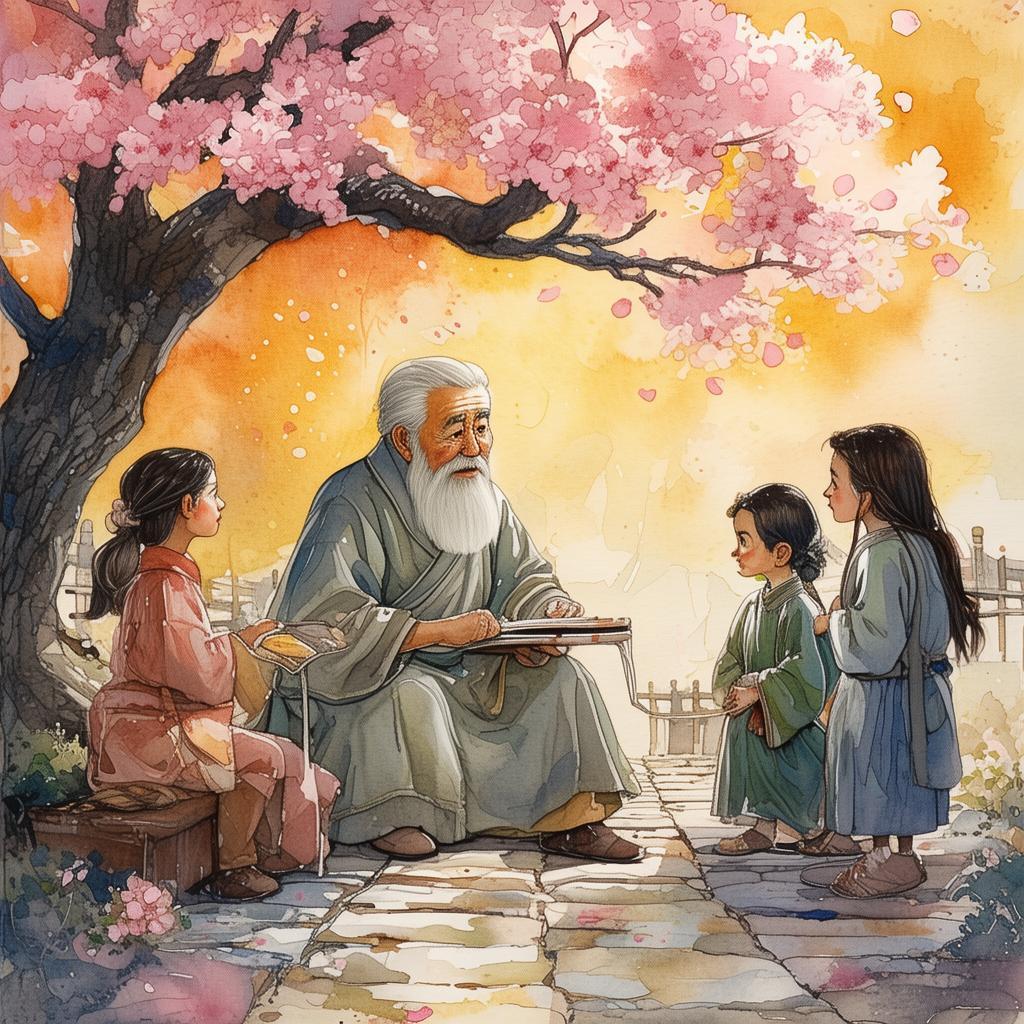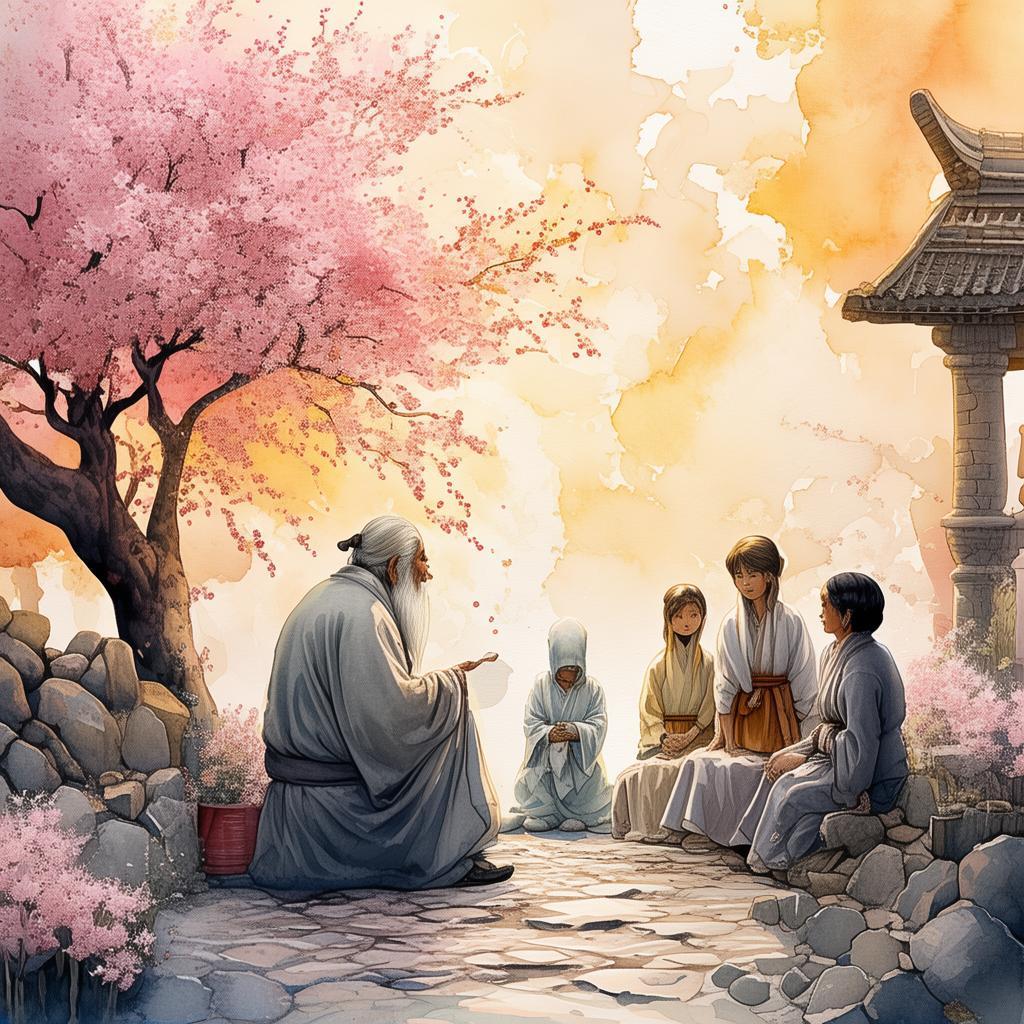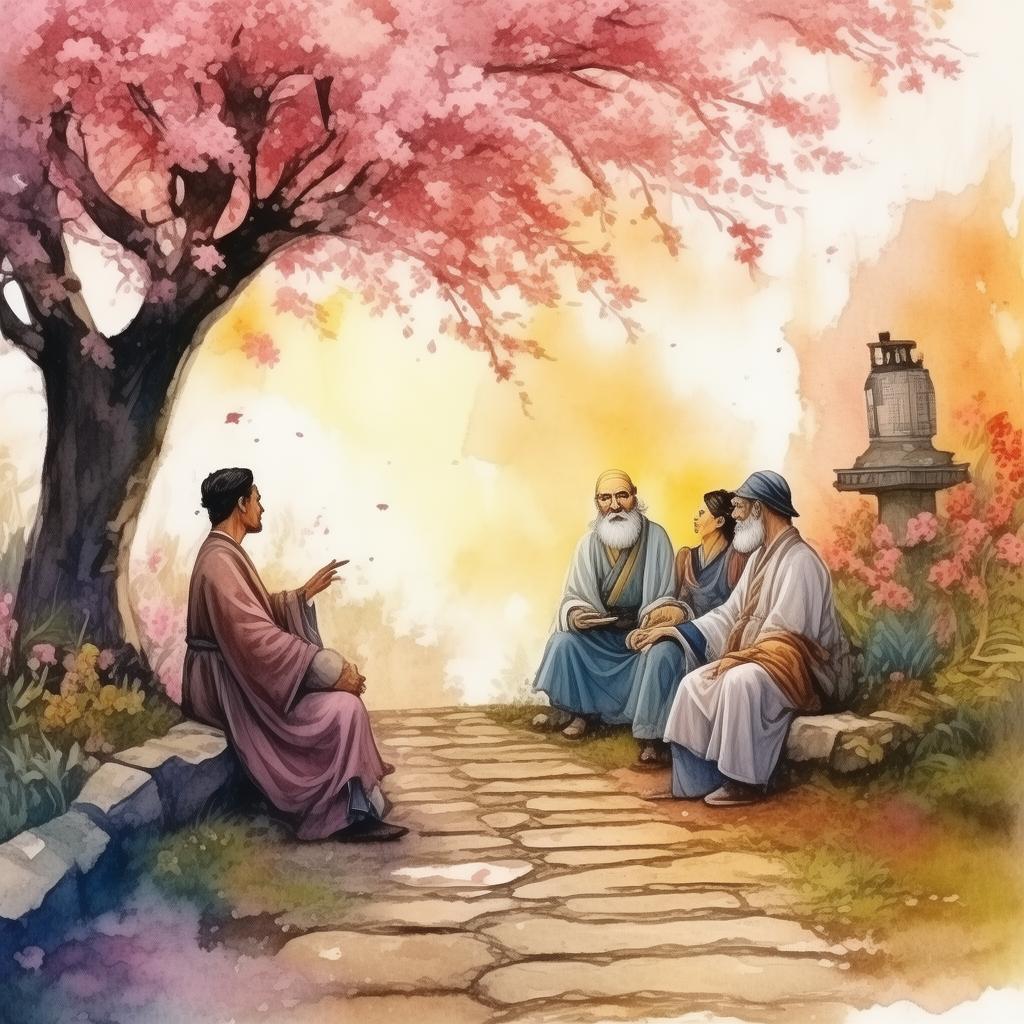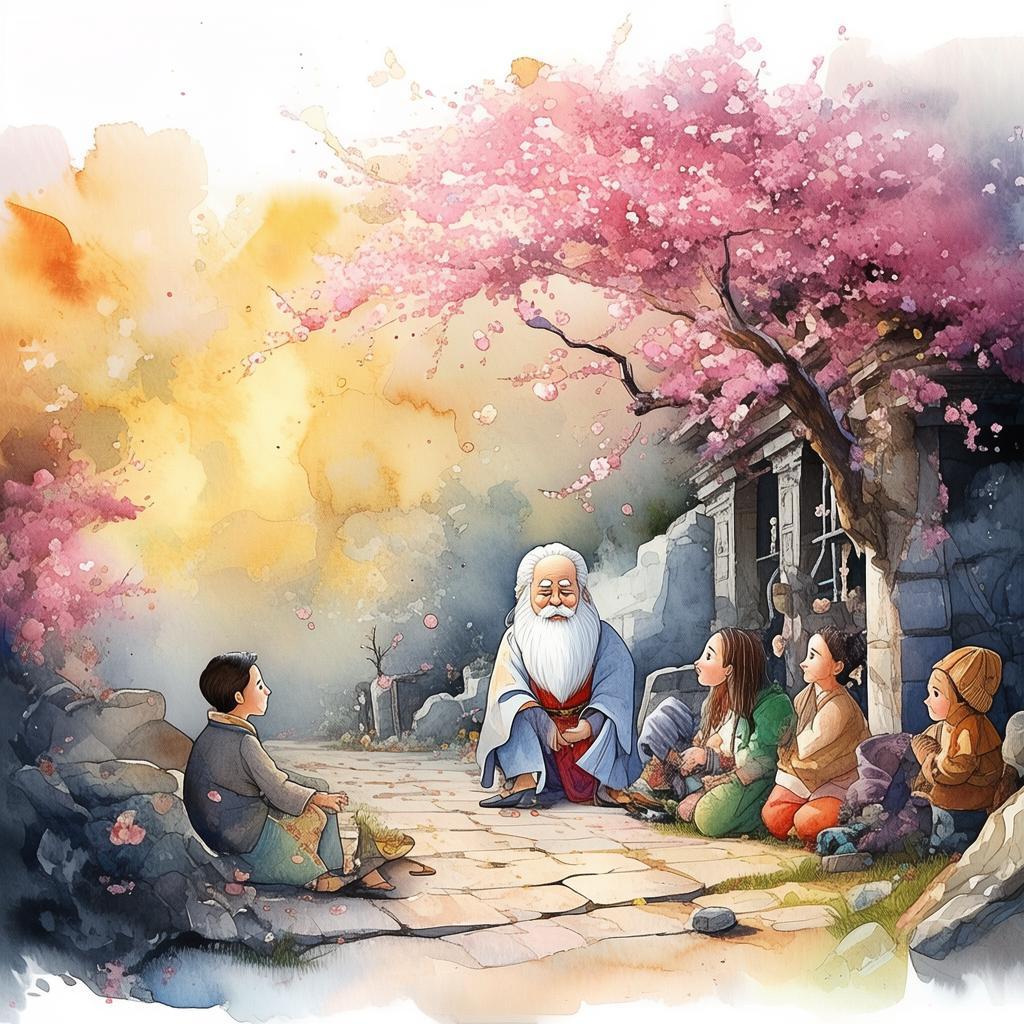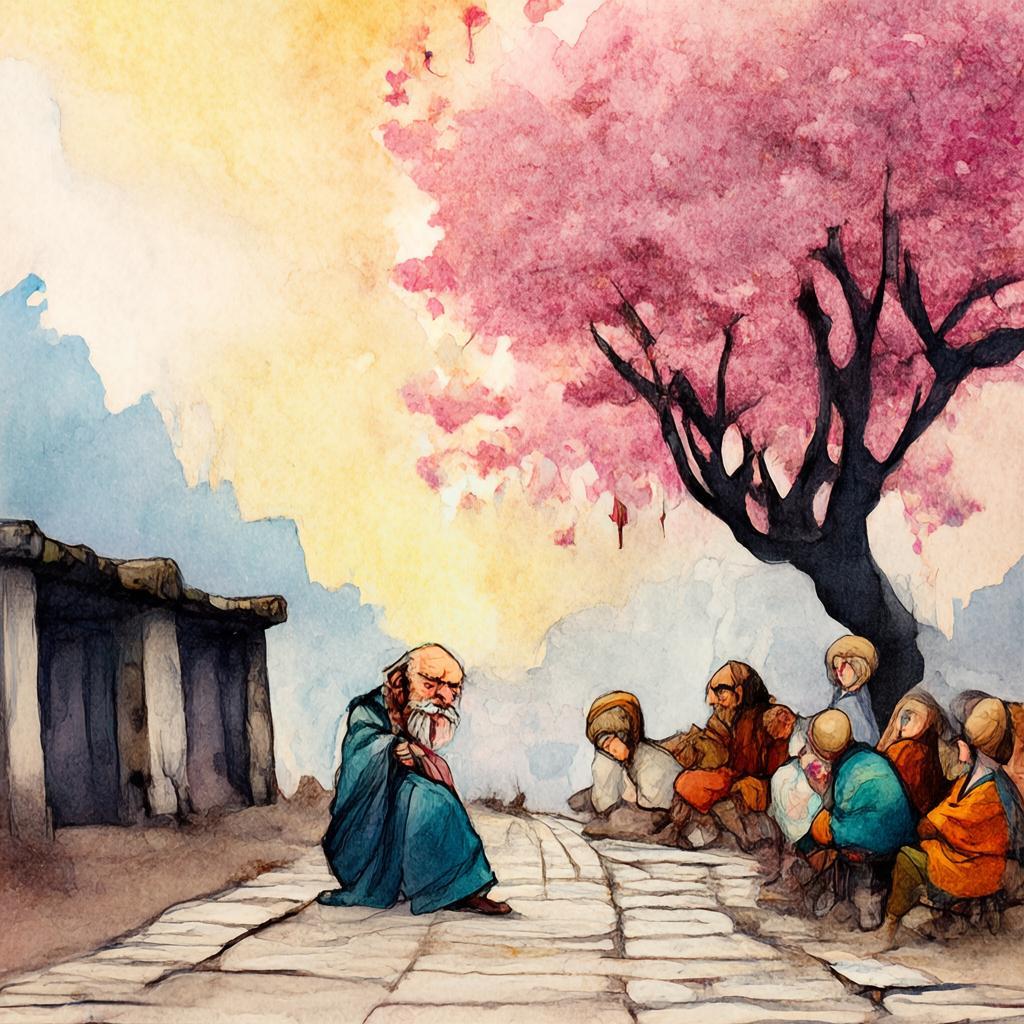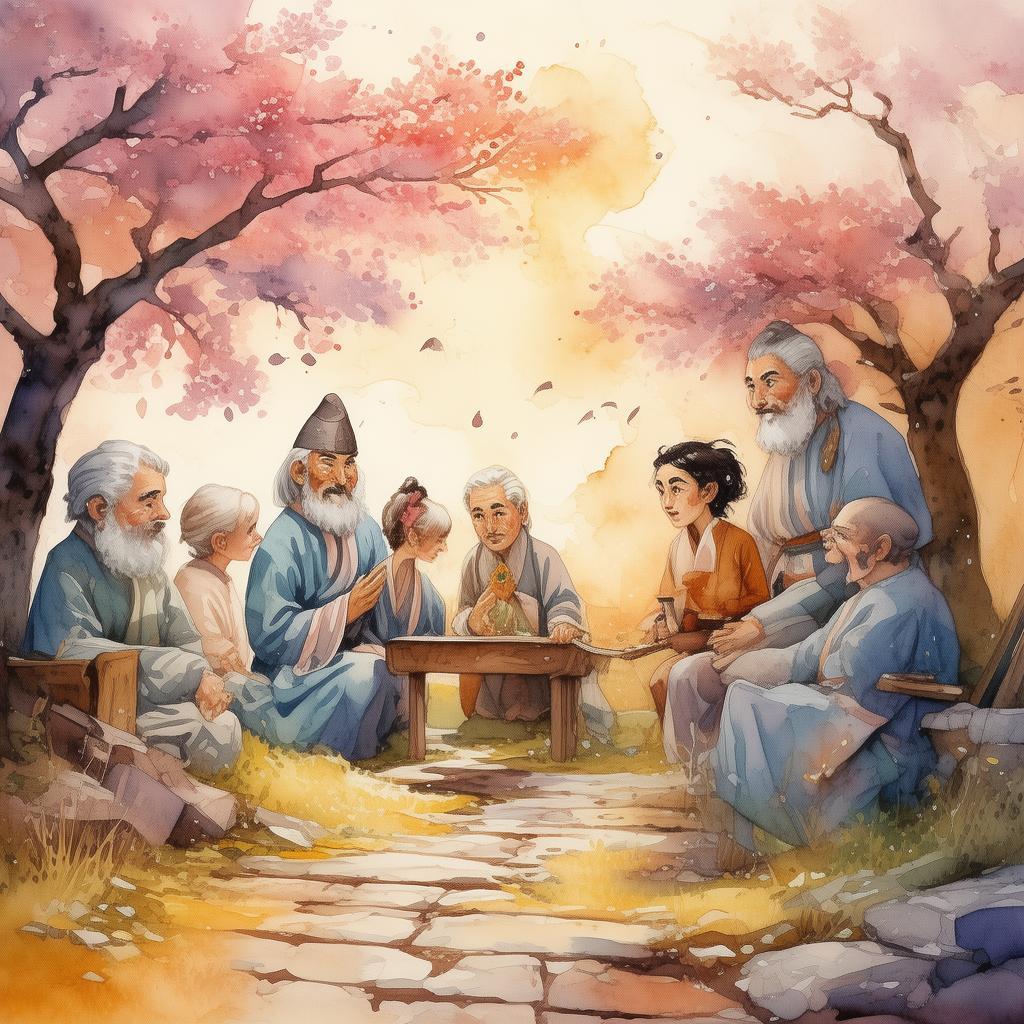The Time-Traveling Chef's Quest for the Ultimate Recipe
In the bustling heart of Beijing, amidst the maze of alleys and towering skyscrapers, there lived a young chef named Ming. Ming was not just any chef; he was an avid collector of culinary lore, with a particular fascination for ancient Chinese recipes. His dreams were filled with images of ancient feasts, where the air shimmered with the scent of exotic spices and the clink of porcelain bowls.
One rainy afternoon, while rummaging through an old bookstore, Ming stumbled upon a dusty, leather-bound book titled "The Time-Traveling Chef A Hundred Battles, A Thousand Recipes." The book was unlike any he had ever seen, its pages filled with intricate calligraphy and illustrations of ancient culinary art. Intrigued, Ming opened the book and was immediately transported into a world of ancient Chinese cuisine.
The first recipe he encountered was for "The Dragon's Roar," a dish so legendary that it was said to possess the power to heal the sick and rejuvenate the old. Ming's heart raced with excitement and fear. Could this be the real thing, or was it just another myth?
As he delved deeper into the book, Ming discovered that each recipe was accompanied by a riddle, a test of his culinary prowess and understanding of ancient Chinese proverbs. To unlock the secrets of the recipes, Ming had to travel through time, facing various challenges that tested his skills, knowledge, and determination.
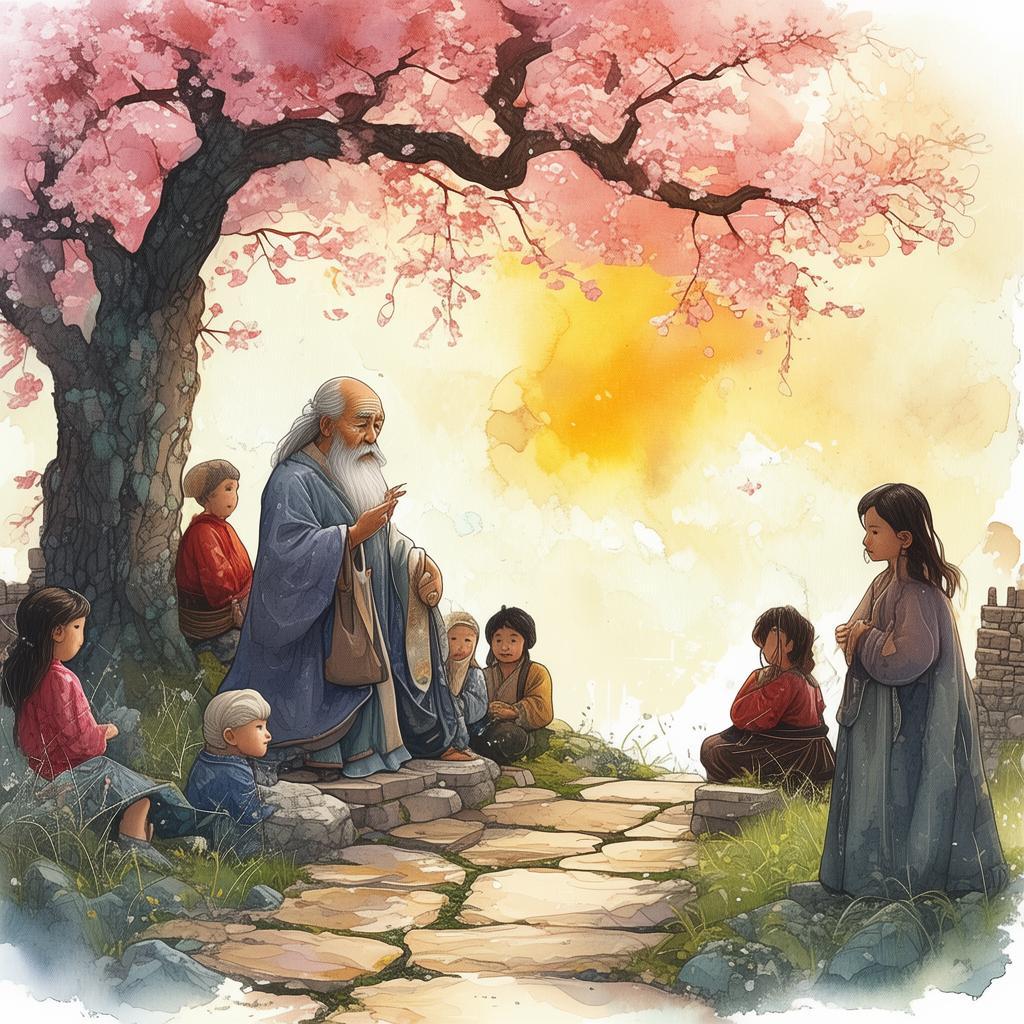
In the era of the Song Dynasty, Ming found himself in a bustling marketplace, surrounded by exotic spices and fresh ingredients. He was tasked with creating "The Phoenix's Whisper," a dish that required him to understand the delicate balance of flavors and the harmony of ingredients. Ming's mind raced as he searched for the perfect combination, using the ancient proverbs as his guide. With each bite, he felt the ancient spirit of the dish filling him, and he knew he was on the right track.
But as he journeyed through the ages, Ming encountered numerous obstacles. He had to navigate the treacherous waters of the Silk Road, survive the tumultuous period of the An Lushan Rebellion, and even confront a group of culinary pirates who sought to steal his knowledge. Through it all, Ming remained undeterred, driven by his passion for culinary perfection and the pursuit of the ultimate recipe.
One day, Ming found himself in the bustling streets of the Ming Dynasty, where he encountered a wise old chef who had mastered the art of cooking. The old chef challenged Ming to a culinary battle, offering the chance to unlock the final recipe, "The Emperor's Blessing," which was said to be the pinnacle of all Chinese cuisine. Ming accepted the challenge, knowing that the fate of his quest rested on the outcome.
The battle was fierce. Ming and the old chef cooked side by side, their skills and knowledge tested to the limit. As the dishes were presented to the judges, a crowd of onlookers gathered, their eyes wide with anticipation. Ming's "The Phoenix's Whisper" was declared the winner, earning him the right to unlock the final recipe.
But as he opened the book, Ming was shocked to find that the recipe was not a dish at all, but a simple proverb: "The essence of a dish is not in the ingredients, but in the heart of the chef." Ming realized that the true secret of the ancient recipes was not the recipes themselves, but the passion, knowledge, and dedication that a chef brings to their craft.
With newfound understanding, Ming returned to the present, his heart full of gratitude and inspiration. He knew that the greatest recipe was not something to be found in a book or through time travel, but something to be created from within. From that day forward, Ming became a legend in his own right, not for the dishes he cooked, but for the heart and soul he put into every meal.
In the end, Ming learned that the greatest recipe was not about the ingredients or the technique, but about the love and dedication a chef brings to their craft. And with that realization, he achieved culinary greatness, a chef whose legacy would live on through the ages.
✨ Original Statement ✨
All articles published on this website (including but not limited to text, images, videos, and other content) are original or authorized for reposting and are protected by relevant laws. Without the explicit written permission of this website, no individual or organization may copy, modify, repost, or use the content for commercial purposes.
If you need to quote or cooperate, please contact this site for authorization. We reserve the right to pursue legal responsibility for any unauthorized use.
Hereby declared.
